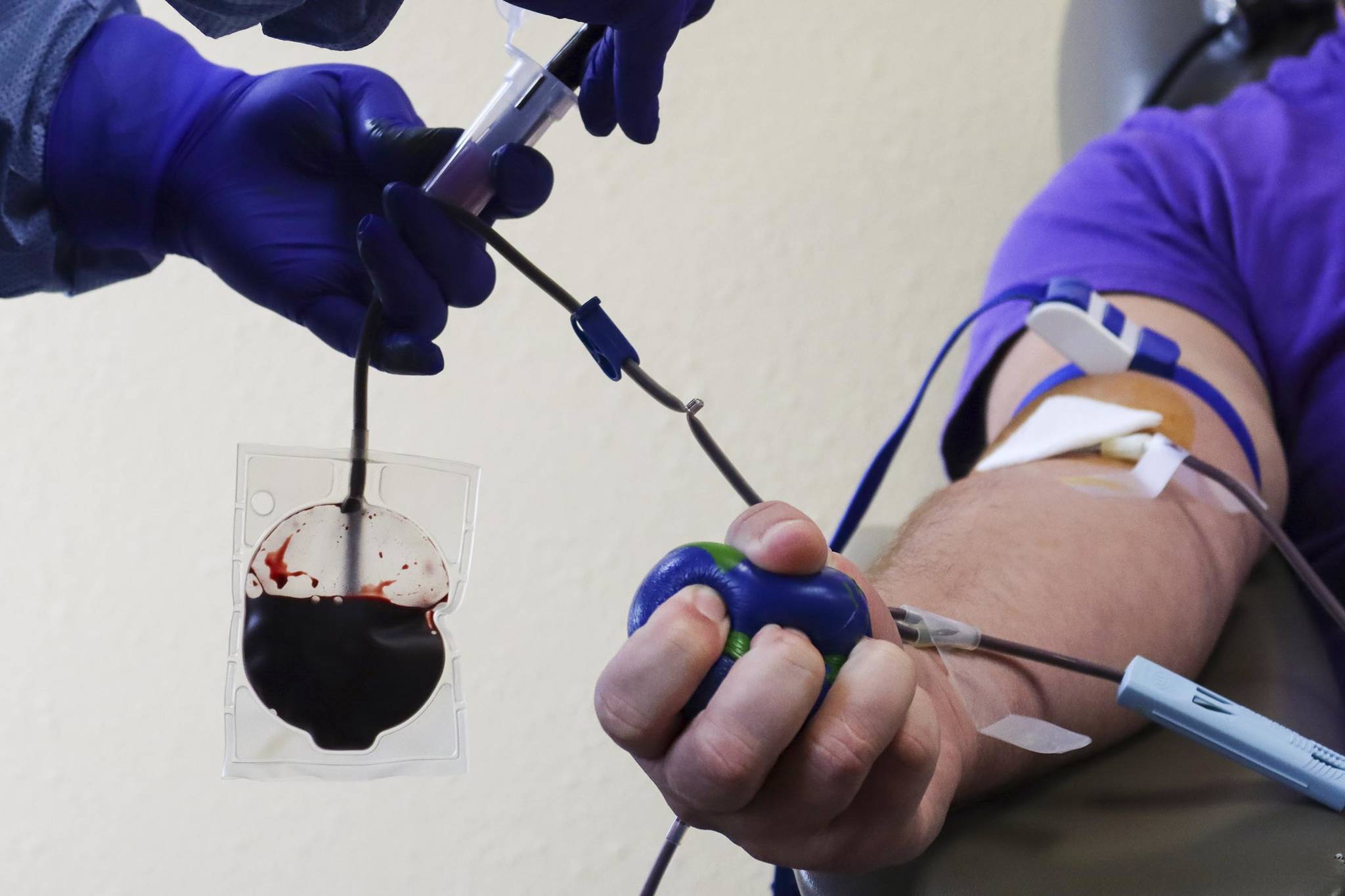Blood isn’t something many people need to consider on a day-to-day basis unless they encounter an unfortunate situation where it’s suddenly at the forefront of their minds.
But for the Blood Bank of Alaska, they always think about the lifesaving donations they require to support Alaska’s hospitals, and how urgent that need is becoming, with critical shortages for multiple blood types.
“There is no substitute for human blood. The blood that’s transfused in hospitals around the world all comes from human donors,” said Wes Dahlgren, the BBA’s director of collections and recruitment. “Our donors have been very responsive, but since COVID, blood levels have been critical.”
Many factors contributed to depleted stocks, Dahlgren said, including more trauma around the state, decreased donations with the summer and the pandemic, which has limited mobile donations.
[Docks and Harbors considering North Douglas launch ramp improvements]
“Usually in the summer months, there’s a decrease in donors. They’re out enjoying the weather, fishing, hiking, those kinds of things. Alaska’s no different — there’s shortages around the country,” Dahlgren said. “We saw the inventory levels getting really thin.”
Blood also only has a shelf life of 42 days, Dahlgren said. However, blood rarely lasts long enough to expire, Dahlgren said — it’s often used first.
“Our donors have been very responsive. But we are still in need of O-negative,” Dahlgren said. “Juneau in particular responded very well. That was the best week they’ve had in a long time.”
Type O-negative, known as the universal donor, is in particularly high demand, as any human can use it, regardless of their blood type. Many rural locations with limited storage space only stock O-negative, Dahlgren said, using it to stabilize casualties before they’re transported to more advanced care facilities.
“Most of our blood doesn’t stay on the shelf long,” Dahlgren said. “All of that blood that’s collected in Alaska stays in Alaska. We ship this blood throughout the state.”
O-negative is also used on incoming casualties before their blood type is determined, Dahlgren said. O-positive is also in high demand as the majority of the population can use it, Dahlgren said, but all blood types are needed.
“You’re always up against the wall to get blood in, period,” Dahlgren said. “To say we don’t need one type is not accurate at all.”
Donors give a single unit of blood at a time, 500 ml — just over a pint. Donors are allowed by the Food and Drug Administration, which regulates blood donation, to donate every 56 days, Dahlgren said, with red blood cells taking the longest to regenerate. Major trauma can require many units of blood to stabilize a casualty as a broken circulation system fails to fulfill its purpose.
“A car accident — it’s not out of the question for someone to take 40 units of blood,” Dahlgren said. “That’s 40 people coming in and donating.”
For the BBA, mobile donations make up roughly 20-25% of donations, Dahlgren said, though in many states, mobile donations make up a much higher percentage. Blood donation centers in Alaska make up much the rest, with partnerships with military installations helping out as well.
“We realized that centers might be a better option in certain situations. Without that it would’ve been a lot harder,” Dahlgren said. “It allows donors in those communities to go when it’s convenient.”
Pandemic mitigation measures removed many mobile donation centers as an option, as well as scattering concentrations of people, places like high schools and office buildings, where those mobile clinics would operate. The entire nation has been hit by critically low levels, Dahlgren said.
“Finding blood outside of Alaska would be very difficult right now, based on the inventory levels,” Dahlgren said. “Blood centers help each other when they can, but it’s really difficult right now.”
How can you help?
Juneau is one of the cities in Alaska that has a blood donation center for the Blood Bank of Alaska, located at 8800 Glacier Highway in the Jordan Creek Center.
Donors can schedule an appointment by calling (907)222-5680.
More information is available online at https://www.bloodbankofalaska.org/donate-blood/.

